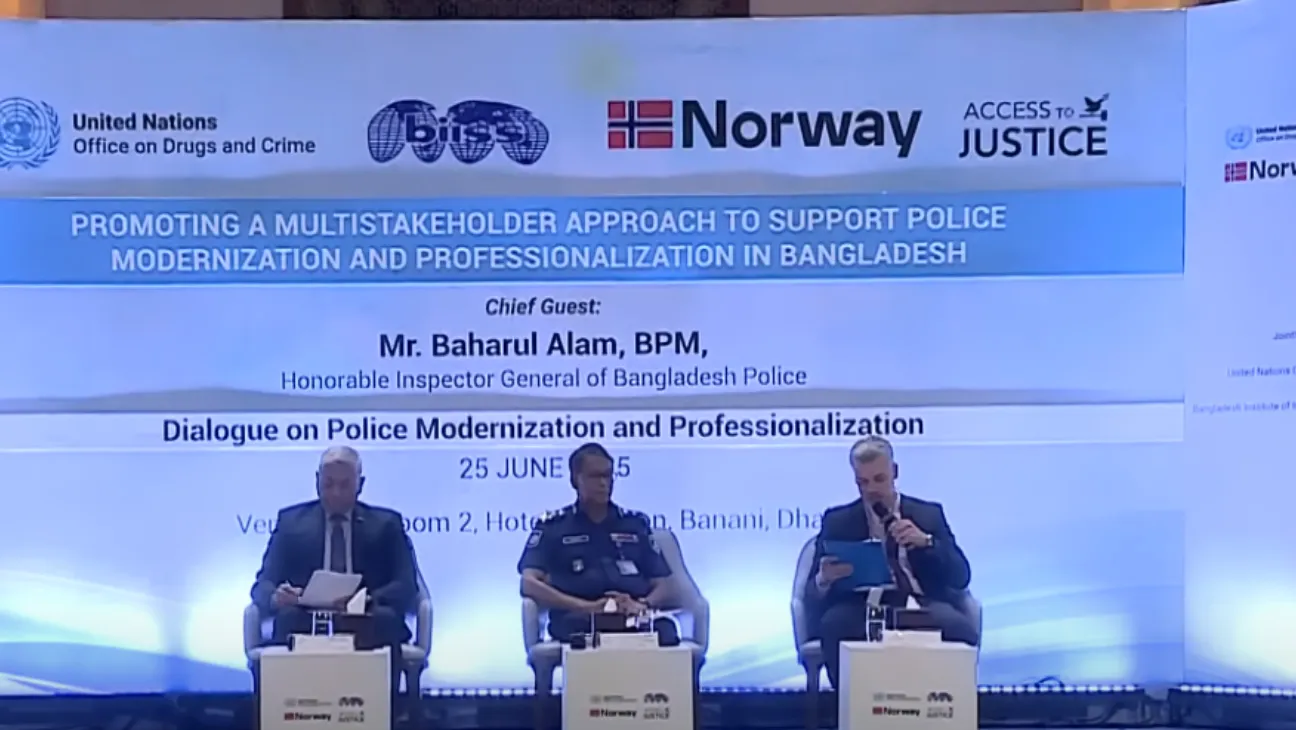Inspector General of Police Baharul Alam expressed dissatisfaction with key recommendations from the Police Reform Commission, saying they fail to address one of the force’s most pressing concerns: political interference.
Speaking Wednesday at a dialogue on police modernization and professionalism, Alam said the commission’s report did not give enough weight to the question of how to shield the police from undue political pressure.
“Influential requests break morale and lead to compromises,” he said. “They push the force off its ethical path.”
The IGP’s comments were delivered at a collaboration between the Bangladesh Institute of Strategic Studies and the UNODC, but his words carry particular weight right now.
Law enforcement is still reeling from a series of violent events in early August that saw officers assaulted, hit with lawsuits, and face a wave of public criticism.
Alam said police are still struggling to recover their full capacity and public confidence since then.
He pointed out that the current police law focuses more on controlling order than upholding rights or preventing crime. While the force has adopted UN standards on use of force—based on necessity, proportionality, legality, and accountability—he said society has not caught up.
“Sometimes, it feels like the same old expectations from the public remain, without accepting our shift in approach,” he said.
The IGP also shared his personal experience with informal requests from powerful individuals.
“These requests often flood in,” he said. “And they undermine justice, morale, and proper administration. It’s a serious governance issue.”
During the discussion, the Norwegian ambassador voiced support for reform.
“We want to see change,” he said. “It requires courage, consensus, and respect for everyone. Security and rights must go hand in hand.”
He restated his country’s commitment to backing the reform process.
The discussion highlighted a growing need for police independence, not just stronger laws or training. As attention turns again to reform, both internal voices and international partners are urging deeper structural change.









